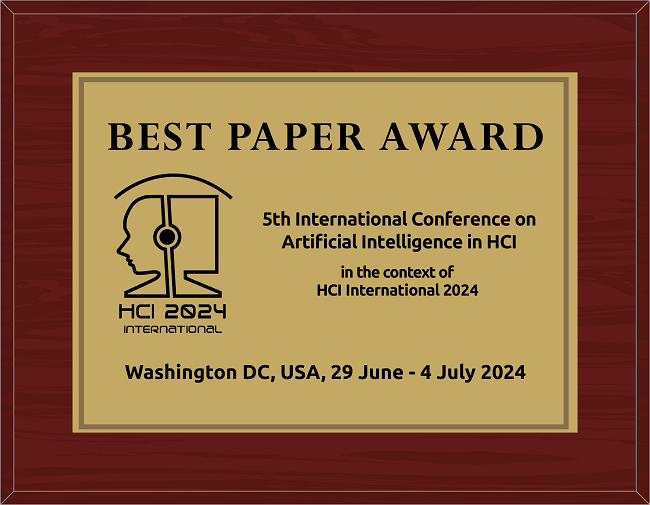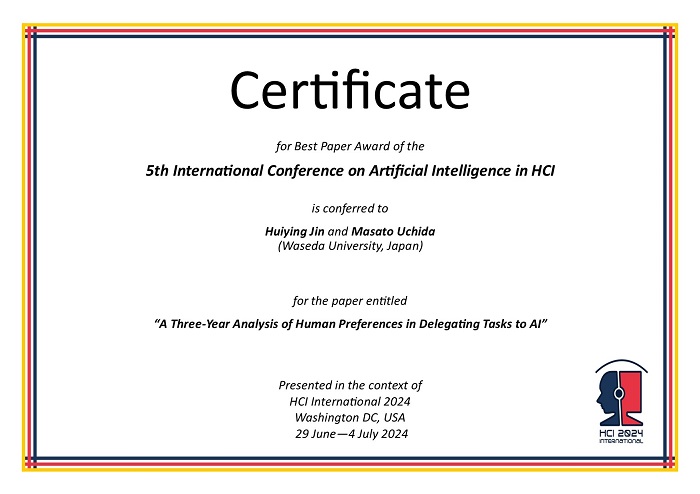
The Best Paper Award of the 5th International Conference on Artificial Intelligence in HCI
has been conferred to
Huiying Jin and Masato Uchida
(Waseda University, Japan)
for the paper entitled
"A Three-Year Analysis of Human Preferences in Delegating Tasks to AI"

Huiying Jin
(presenter)

Best Paper Award for the 5th International Conference on Artificial Intelligence in HCI, in the context of HCI International 2024, Washington DC, USA, 29 June - 4 July 2024

Certificate for Best Paper Award of the 5th International Conference on Artificial Intelligence in HCI presented in the context of HCI International 2024, Washington DC, USA, 29 June - 4 July 2024
Paper Abstract
For the practical application and development of future artificial intelligence (AI) technologies, analyzing human preferences when delegating tasks to AI has become crucial. Additionally, the advancement of technology will impact human perceptions. Therefore, to assess how AI advancement has affected human perceptions, we compared changes in human preferences before and after the widespread adoption of generative AI. This assessment was approached from two distinct perspectives: task categories and delegation factors. Task category clustering was conducted with the input from survey respondents to reassign categories based on their perceptions, enabling the analysis of preferred tasks, and determining whether they have changed. To understand the factors that affect human decision-making regarding delegation, we conducted structural equation modeling (SEM). This analysis allowed us to examine whether the data fit the hypothesized delegation framework and analyze the changes. Furthermore, it enabled us to estimate the magnitudes of the effects of latent factors. Through these two statistical analyses, we discovered that people have become more and more risk-conscious with the development of technology. The introduction of AI services has heightened public awareness regarding the capabilities and limitations of AI, leading to increased consciousness of potential risks associated with this technology. Furthermore, we found that achieving machine capability is still important. Delegability to AI is expected to increase as technology advances. Moreover, the results of analysis shows that careful consideration of motivation is essential. Tasks for which individuals lack motivation are more likely to be delegated to AI, highlighting their suitability for practical implementation in real-world applications.
The full paper is available through SpringerLink, provided that you have proper access rights.